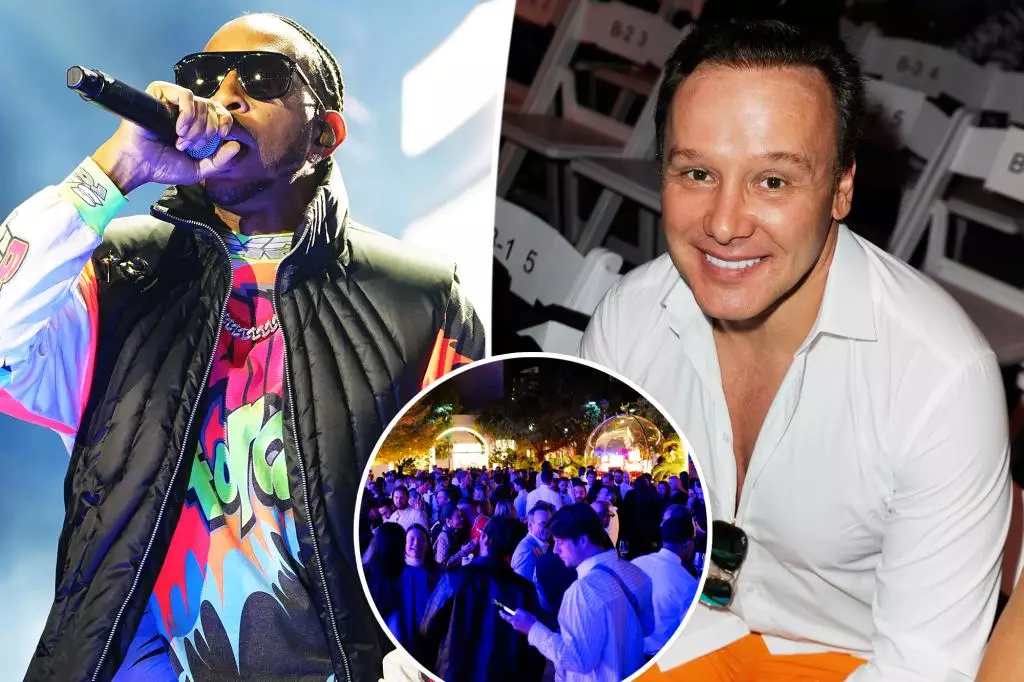Miami, often synonymous with extravagance and opulence, faces an unanticipated clash between its elite social scene and the legal boundaries set to manage it. As Art Basel approaches—a time when the city bursts into a kaleidoscope of creativity and celebration—the ruling class has found their ability to throw lavish parties curtailed. A court ruling against prominent figures such as renowned plastic surgeon Leonard Hochstein and party enthusiast Daniel Vincent Liburdi underscores a pivotal moment in Miami’s history where community values are contending with the privileges of wealth.
The origin of this legal conflict stems from the newly enacted “Art Week PHS House Party Resolution,” which demands that hosts of large-scale events secure permits. This legislation, implemented to alleviate local grievances about noise and disruption—echoes the community’s call for a return to order amidst the chaos often associated with high-profile events. The plaintiffs’ attempt to resist these regulations via an emergency motion for a temporary injunction was met with skepticism by U.S. District Judge K. Michael Moore, who prioritized the city’s interests over individual desires to host extravagant celebrations.
As the gavel fell on this legal battle, a collective voice from the Miami residential landscape expressed relief. No longer are the affluent elite shielded from the consequences of their high-octane celebrations. Neighbors of these mansions, tired of wild parties spilling into their quiet evenings, have welcomed a governing body that seeks a balance between luxury and livability. Under the backdrop of luxury condos and beachside palaces, the sentiments of everyday residents have finally resonated amidst the clamor of wealth.
Vice Mayor of Miami Beach Alex Fernandez brought this message home, asserting that “rich and famous people aren’t above the law.” His remarks embody a sense of accountability previously thought absent in the realms of the affluent. The tensions central to this issue highlight a larger societal dynamic where privilege must be weighed against communal peace and civility. For every rich party thrown in the name of culture, how many residents have to sacrifice their night’s serenity?
Despite the setback in legal avenues, Hochstein and others can still host their much-anticipated events, albeit under stringent regulations that impact the guest list and party dynamics. The new restrictions entail occupancy limits, noise control measures, and specific parking regulations. Hochstein’s upcoming star-studded bash will exhibit the changes, as the exclusive Nylon magazine and Movado party morphs into a controlled affair with wristband security and shuttle services—mechanisms aimed to alleviate the traffic chaos typically associated with such elite gatherings.
This paradigm shift signifies more than just a legal victory; it reflects a cultural evolution where the norms of hosting events in Miami may undergo significant transformation. Wealthy hosts accustomed to unregulated festivities will now have to navigate a landscape where licenses, permits, and communal relations hold greater weight than sheer opulence. Hence, the evolving party landscape will demand a judicious approach to event organization, balancing the aesthetic appeal of grand soirees with the practicalities of community living.
As we turn the page on this saga, one must ponder the ramifications these rulings will have on Miami’s future. Will the glittering parties, once the envy of the global elite, now succumb to a more measured approach? Or will the affluent class find innovative ways to maintain the grandeur without tipping the scales of public dissent?
Ultimately, Miami stands at a crossroads, where lavish lifestyles confront societal responsibilities. The City’s decision to uphold regulations signifies a larger commitment to nurturing a harmonious community, where personal enjoyment should not eclipse the well-being of others. With the new judicial framework in place, the city’s legislative system has shifted, not only in how parties are hosted but in redefining community standards. The interplay of wealth and law will undoubtedly continue to evolve, shaping the future of Miami’s social scene one party at a time.


Leave a Reply